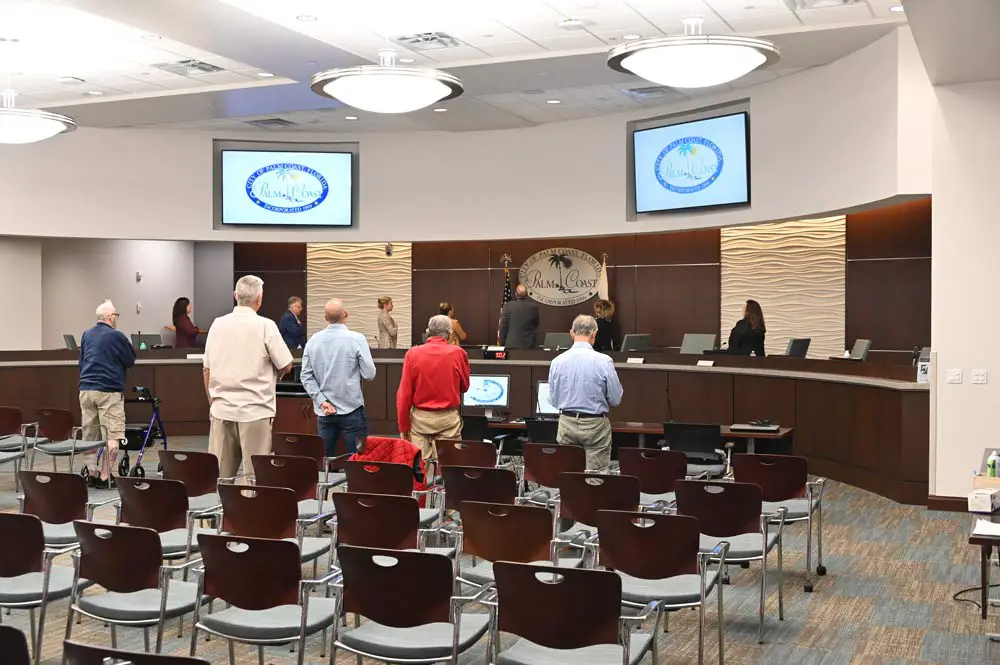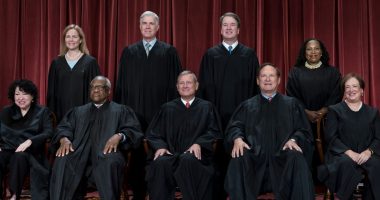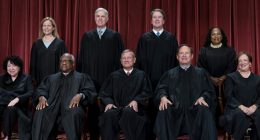
On Tuesday morning, the Palm Coast City Council will consider adopting a utility franchise fee that could add up to 6 percent to the cost of residents’ electric utility bills and significantly add to the city’s tax-revenue structure.
It is at least the fourth time the council has considered the fee in the last 11 years. Three times before, in 2012, 2018 and 2019, it also considered adding a public service tax on utilities, which can run up to 10 percent. A vehement response forced the council to abandon the plan in 2012 and 2018. It was only briefly discussed in 2019 and dropped. (See the table at the foot of the article including a history of electric and utility taxes in Palm Coast.)
The council was prompted again to discuss both possibilities after the administration presented $52 million in street-repaving needs over the next five years, without a revenue stream that would fund much of the amount. Last week, the council agreed to consider only the franchise fee.
Some of the council members see it not as a way to generate new revenue, but to shift revenue from the property tax to the fee. In other words, the property tax would be lowered, possibly to the rolled back rate, and that revenue would be made up through the utility franchise fee. The property tax would have to be lowered further than roll-back, however, to account for over $5 million in revenue from a 6 percent fee. If this were the council’s approach, it would defeat the purpose of the administration’s attempt to spur the council to find additional revenue to account for a gap that a revenue shift will not close.
Either way, the proposal of a franchise fee is generating a significant public response. It is also generating inaccuracies–from one of the council members.
Palm Coast City Council member Ed Danko, who is running for a County Commission seat, on July 14 paired a campaign ad with a call to followers to show up at the council meeting on Tuesday. The ad included one factually incorrect statement and one misleading statement.
Danko wrote: “I will get right to the point; the City of Palm Coast wants to impose a so-called ‘Franchise Fee,’ a whopping 6% on your FPL monthly electric and an absurd 10% on your monthly City Utility bills.” Only half of that claim is correct, and possibly not entirely so.
The reference to the 10 percent tax is to the potential utility tax. It is flatly inaccurate. No such tax is on the agenda Tuesday. The council and the city’s finance director discussed it previously as a possible source of revenue, and discussed it again last week. But the council made clear last week that it would consider only the franchise fee. “The one that council wanted to hear more about was the electric franchise fee, and that’s the one being discussed tomorrow,” a city spokesperson said on Monday. “There was no movement on looking into the utility revenue source.”
Danko on Monday was right when he texted that “The up to 10% utility fee/tax was brought up at last week’s workshop,” but he was puzzling–or wrong–when he added that it “will be coming soon to an agenda and a vote. The public needs to know this in advance.”
Mayor David Alfin disagreed. “It’s not an agenda item that I am aware of. I’m not aware of that coming up in the future,” he said.
Read Related Also: ‘You are the definition of flight risk’: Cold case murder suspect weeps as judge denies bond
Council meetings’ agendas include a list of upcoming topics the council will discuss or vote on through the end of the year, and an additional list of “future” project discussions, with open dates. The list is fluid. But it has no mention of a workshop or business discussion of the utility tax over the next five months. The closest thing to a change in customers’ utility bills–and it likely won’t be a small change–is a future discussion of the council approving a new rate study, which would eventually lead to a rate hike. But that’s different from a utility tax.
Danko in his campaign email also wrote: “Worse, this TAX would last for 30 years before it would have to re-emerge before the council for renewal.” That’s misleading, especially since Danko’s context does not distinguish between the franchise fee and the utility tax, and if he is assuming that readers know he is referring only to the franchise fee, it is misleading on that account, too.
The proposal the council is set to vote on Tuesday is, in fact, a 30-year contract between the city and Florida Power and Light, and as drafted, it does call for a 6 percent levy. But the council has not yet decided that it would be 6 percent. The levy may be set anywhere between 0.5 percent and 6 percent. In most cases, it’s set at 6 percent. While such fees have a way of embedding themselves into the budget like stony Egyptian steles, never to be altered, the council does have the authority to alter the percentage of the fee every year, at its discretion.
Danko acknowledged that in today’s follow-up text and, judging from other cities’ experience, is probably pon solid ground when he states that “While the franchise fees could be brought up every year by council, we all know that will never happen. It doesn’t take a genius to know If these franchise fees are passed, and we will be living with these taxes for the next 30 years.”
Most cities in the state, including Flagler Beach, Bunnell and Ormond Beach, max out on both the franchise fee and the utility tax and don’t make a habit of discussing the fee every year. But that’s in large part because constituents don’t know they can demand a reconsideration. Palm Coast is among the 12 percent of cities that do not impose either a franchise fee or a utility tax.
Danko refers to the fee as a “tax” throughout his campaign email. There’s less disagreement on that debate–whether it is a tax or a fee– even in court decisions, though prevailing law makes a distinction only to the extent that it allows cities to impose both the franchise “fee” and the utility tax, thus evading the charge of double-taxation. To those paying the bills, however, it is a distinction without a difference.
Semantics aside, he is accurate when he notes that “it is not only a TAX on homeowners, it’s a TAX on renters, and it is a TAX on businesses. No doubt, businesses will pass this TAX onto you, the consumer.” But that’s one of the reasons the council is looking at the franchise fee: as regressive as it is, compared to the property tax (which is more means tested according to a property owner’s home value, and therefore ability to pay), the franchise fee would apply to innumerable customers who don’t pay the property tax: non-profits like AdventHealth Palm Coast’s two hospitals, the Government Services Building, the county courthouse, all schools, all churches, and of course renters, though renters have always paid property taxes through their rent checks. They are not likely to see a drop in rent even if the property tax rate goes back to rollback, but they would see an increase in their utility bills.
A city calculation estimates that at the full 6 percent, the franchise fee would generate $5.75 million next year, and cost the typical customer using 1,000 kwh per month an additional $7.78, or $93. It is unlikely that the median property owner would see an equivalent drop in the Palm Coast property tax.
“There have been a lot of emails from residents to both council members and the administration,” the spokesperson said, referring to the issue–whether because it’s been reported over the past two weeks or because of Danko’s email is unclear: it’s probably both. “It does look like there’s going to be a pretty significant display of public participation tomorrow morning,” the spokesperson said of the council’s 9 a.m. meeting at City Hall.
![]()
franchise-fee








